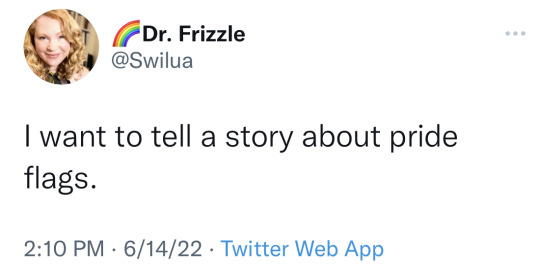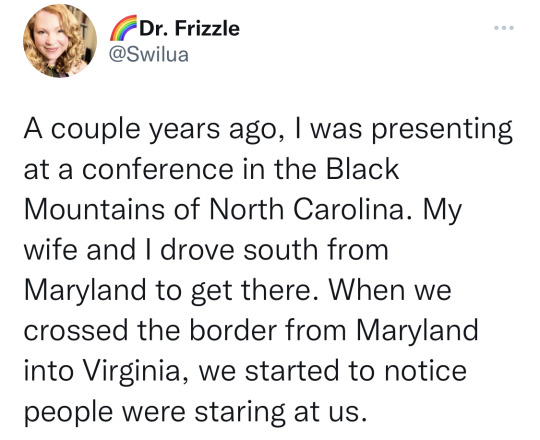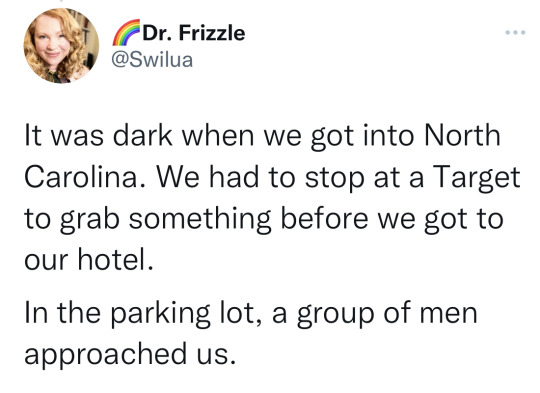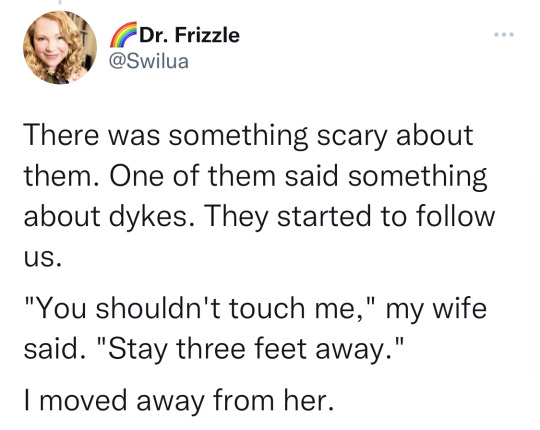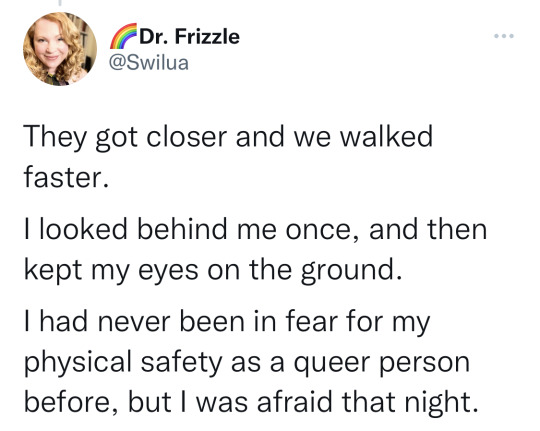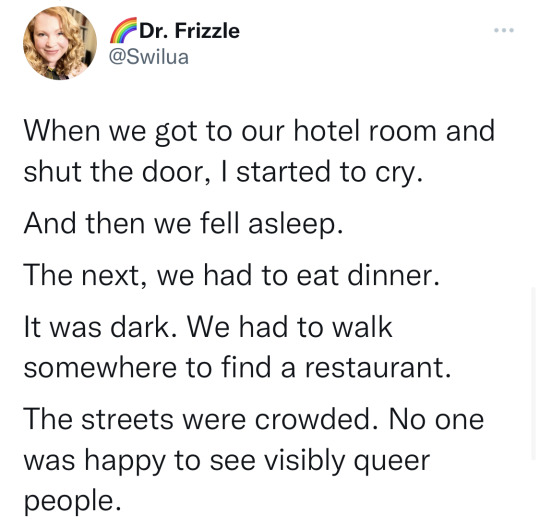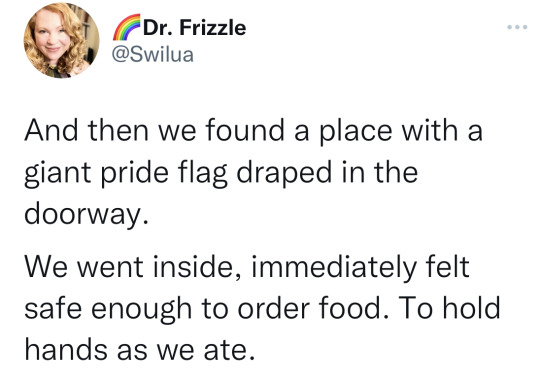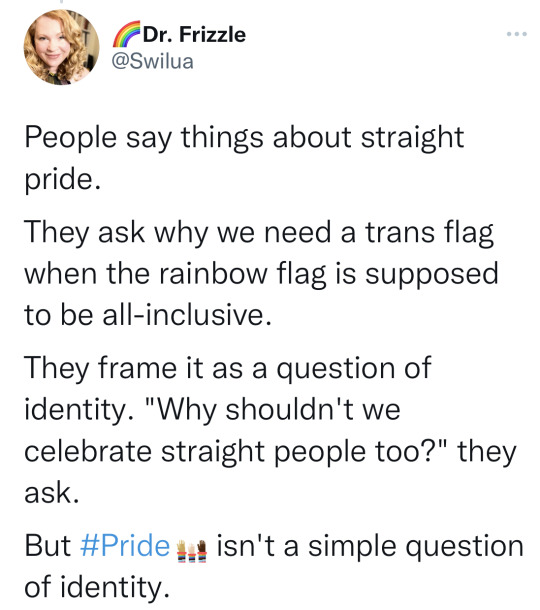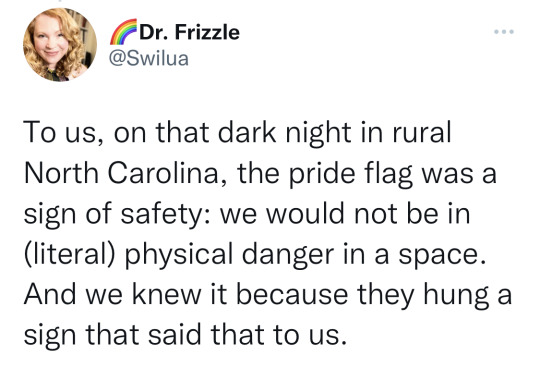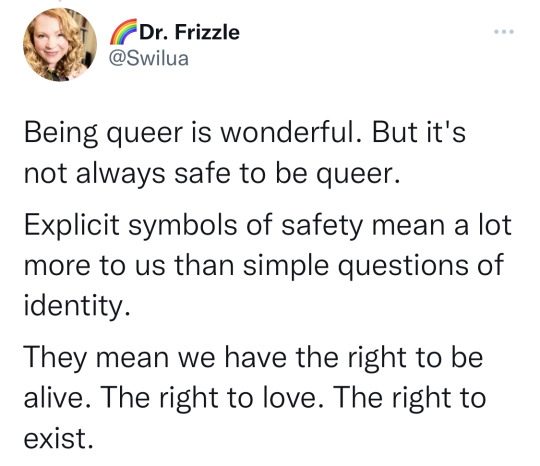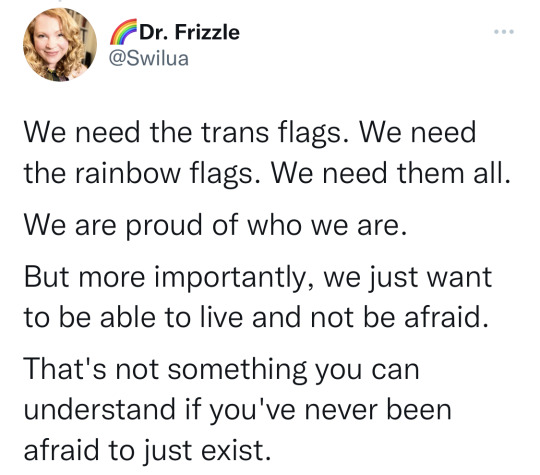Photo







Resistance can take many forms - from education to litigation, from within a small community to throughout the globe. Though I have omitted highly important figures like Yuri Kochiyama and Fred Korematsu, I wanted to spotlight lesser-known individuals who resisted injustice in a variety of ways. They demonstrate that we too can act against oppression and inequality, however we are able.
[Aiko Herzig-Yoshinaga] [Ina Sugihara] [Mitsuye Endo] [Norman Mineta] [Aki Kurose]
Many thanks to The Densho Project for the research materials
I’ve put a printed zine version of these drawings and stories on my Storenvy for preorder, all profits from sales of the zine will be donated to the ACLU. Zines will be shipped out in early March.
39K notes
·
View notes
Photo






A compilation of my magical ocean-themed illustrations - all of these and more are available as prints until Nov 26th in my store here!
63K notes
·
View notes
Text



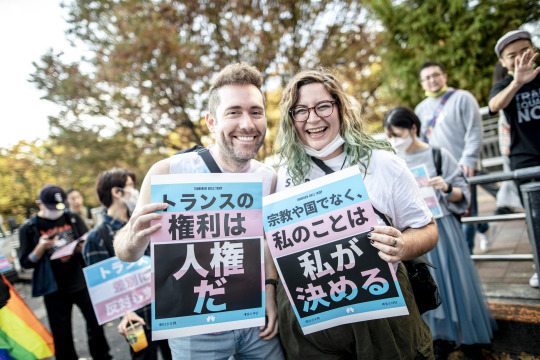


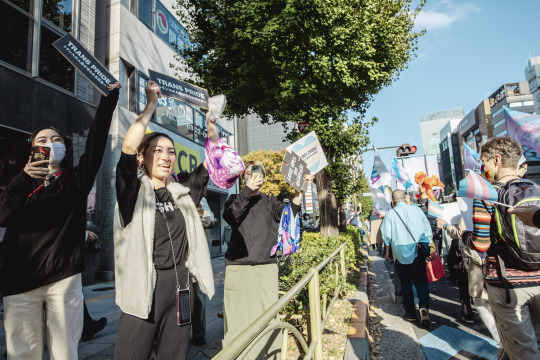




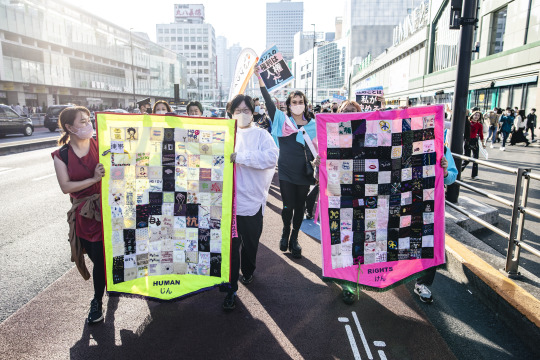









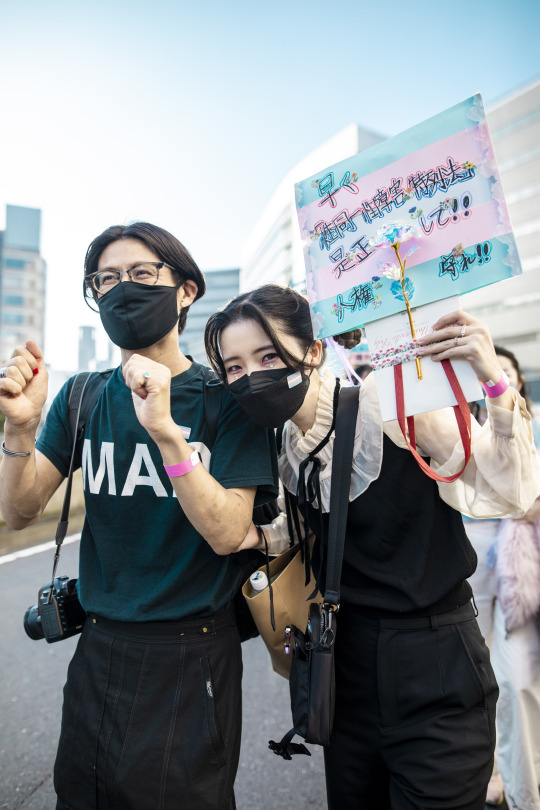


2022.11.12 TOKYO TRANS MARCH @ Shinjuku,TOKYO / #TransDayOfRemembrance / Part1
31K notes
·
View notes
Text
“This actually did happen to a real person, and the real person was me. I had gone to catch a train. This was April 1976, in Cambridge, U.K. I was a bit early for the train. I’d gotten the time of the train wrong. I went to get myself a newspaper to do the crossword, and a cup of coffee and a packet of cookies. I went and sat at a table. I want you to picture the scene. It’s very important that you get this very clear in your mind. Here’s the table, newspaper, cup of coffee, packet of cookies. There’s a guy sitting opposite me, perfectly ordinary-looking guy wearing a business suit, carrying a briefcase. It didn’t look like he was going to do anything weird. What he did was this: he suddenly leaned across, picked up the packet of cookies, tore it open, took one out, and ate it. Now this, I have to say, is the sort of thing the British are very bad at dealing with. There’s nothing in our background, upbringing, or education that teaches you how to deal with someone who in broad daylight has just stolen your cookies. You know what would happen if this had been South Central Los Angeles. There would have very quickly been gunfire, helicopters coming in, CNN, you know… But in the end, I did what any red-blooded Englishman would do: I ignored it. And I stared at the newspaper, took a sip of coffee, tried to do a clue in the newspaper, couldn’t do anything, and thought, what am I going to do? In the end I thought, nothing for it, I’ll just have to go for it, and I tried very hard not to notice the fact that the packet was already mysteriously opened. I took out a cookie for myself. I thought, that settled him. But it hadn’t because a moment or two later he did it again. He took another cookie. Having not mentioned it the first time, it was somehow even harder to raise the subject the second time around. “Excuse me, I couldn’t help but notice …” I mean, it doesn’t really work. We went through the whole packet like this. When I say the whole packet, I mean there were only about eight cookies, but it felt like a lifetime. He took one, I took one, he took one, I took one. Finally, when we got to the end, he stood up and walked away. Well, we exchanged meaningful looks, then he walked away, and I breathed a sigh of relief and sat back. A moment or two later the train was coming in, so I tossed back the rest of my coffee, stood up, picked up the newspaper, and underneath the newspaper were my cookies. The thing I like particularly about this story is the sensation that somewhere in England there has been wandering around for the last quarter-century a perfectly ordinary guy who’s had the same exact story, only he doesn’t have the punch line.”
— Douglas Adams (via revolverwife)
70K notes
·
View notes
Text
Fun fact! South Korea has had a screen quota system in place since 1966 that requires a certain number of domestic films to be screened in theaters, to (theoretically) protect the growth of the Korean film industry.
The USA did not like this. Hollywood really wanted to get rid of South Korea’s screen quota system for a very long time, for instance during the 1990s South Korea-America Bilateral Investment Treaties where the USA requested the quota to be abolished to expand Hollywood films into Korean markets. Afterward the Motion Picture Association of America continued to lobby to have quota reduced until they basically got what they wanted with the Korea-USA 2006 Free Trade Agreement, which required the reduction of screen quotas. Dal Yong Jin even called these quotas the Korean government’s “sacrificial lamb” to facilitate the signing of FTA.
The expansion of American cultural industries and American economic interests go hand in hand. Art never stands by itself.
As you might expect, the reduction of screen quotas have had a significant effect on the domestic Korean market. Hollywood exports into Korea have boomed over the last two decades (just look at that Korean box office for Avengers: Endgame!) Meanwhile, domestic independent and arthouse films have been pushed out of theaters in favor of domestic and international blockbusters.
Interestingly enough, you are also seeing big-budget Korean blockbuster films that sort of follow the Hollywood model to compete with Hollywood and stir up nationalism (in the ”look, we can do it too!” variety). The Korean domestic industry has also been looking toward global expansion, almost in a Hollywood-esque manner: lots of investment on the part of conglomerates like CJ Entertainment to export films to foreign markets or snag film festival prizes—of which Parasite is a recent successful example.
The important point here: America’s cultural industry not only creates an “Echo Chamber” within its own borders.
“America” is impossible to escape, even on the other side of the globe.
« Foreigners follow American news stories like their own, listen to American pop music, and watch copious amounts of American television and film. […] Americans, too, stick to the U.S. The list of the 500 highest-grossing films of all time in the U.S., for example, doesn’t contain a single foreign film (Crouching Tiger, Hidden Dragon comes in at 505th, slightly higher than Bee Movie but about a hundred below Paul Blart: Mall Cop). […]
How did this happen? How did cultural globalization in the twentieth century travel along such a one-way path? And why is the U.S.—that globe-bestriding colossus with more than 700 overseas bases—so strangely isolated?
[…W]hen 600 or so journalists, media magnates, and diplomats arrived in Geneva in 1948 to draft the press freedom clauses for […] the U.N. Declaration of Human Rights […], definitional difficulties abounded. Between what the U.S. meant by “freedom of information” and what the rest of the world needed lay a vast expanse. For the American delegates, the question belonged to the higher plane of moral principle. But representatives of other states had more earthly concerns.
The war had tilted the planet’s communications infrastructure to America’s advantage. In the late 1940s, for example, the U.S. consumed 63% of the world’s newsprint supply; to put it more starkly, the country consumed as much newsprint in a single day as India did over the course of a year. A materials shortage would hamper newspaper production across much of the world into at least the 1950s. The war had also laid low foreign news agencies—Germany’s Wolff and France’s Havas had disappeared entirely—and not a single news agency called the global south home. At the same time, America’s Associated Press and United Press International both had plans for global expansion, leading The Economist to note wryly that the executive director of the AP emitted “a peculiar moral glow in finding that his idea of freedom coincides with his commercial advantage.”
Back in Geneva, delegates from the global south pointed out these immense inequalities. […] But the American delegates refused the idea that global inequality itself was a barrier to the flow of information across borders. Besides, they argued, redistributive measures violated the sanctity of the press. The U.S. was able to strong-arm its notion of press freedom—a hybrid combining the American Constitution’s First Amendment and a consumer right to receive information across borders—at the conference, but the U.N.’s efforts to define and ensure the freedom of information ended in a stalemate.
The failure to redistribute resources, the lack of multilateral investment in producing more balanced international flows of information, and the might of the American culture industry at the end of the war—all of this amounted to a guarantee of the American right to spread information and culture across the globe.
The postwar expansion of American news agencies, Hollywood studios, and rock and roll bore this out. […] Meanwhile, the State Department and the American film industry worked together to dismantle other countries’ quota walls for foreign films, a move that consolidated Hollywood’s already dominant position.
[…A]s the U.S. exported its culture in astonishing amounts, it imported very little. In other words, just as the U.S. took command as the planetary superpower, it remained surprisingly cut off from the rest of the world. A parochial empire, but with a global reach. [And] American culture[’s] inward-looking tendencies [precede] the 1940s.
The media ecosystem in particular, Lebovic writes, [already] constituted an “Americanist echo chamber.” Few of the films shown in American cinemas were foreign (largely a result of the Motion Picture Production Code, which the industry began imposing on itself in 1934; code authorities prudishly disapproved of the sexual mores of European films). Few television programs came from abroad […]. Few newspapers subscribed to foreign news agencies. Even fewer had foreign correspondents. And very few pages in those papers were devoted to foreign affairs. An echo chamber indeed, [… which] reduced the flow of information and culture from much of the rest of the world to a trickle. […]
Today is not the 1950s. [… But] America’s culture industry has not stopped its mercantilist pursuits. And Web 2.0 has corralled a lot of the world’s online activities onto the platforms of a handful of American companies. America’s geopolitical preeminence may slip away in the not-so-distant future, but it’s not clear if Americans will change the channel. »
— “How American Culture Ate the World”, a review of Sam Lebovic’s book A Righteous Smokescreen: Postwar America and the Politics of Cultural Globalization
#bong joon ho in particular has always included this pull-push ambivalence toward hollywood in his work#okja and snowpiercer both explicitly and implicitly mock Hollywood in terms of genre/plots and also as globalizing/expanding presence#which makes parasite's oscar success rather ironic#but that's empire innit
10K notes
·
View notes
Text
Something really shitty has just been passed by the UK goverment.
A new bill that is stripping out human rights has been passed and we need to fight it before it costs lives. The new Human Rights Bill has made nazi Germans esc changes that will effect you or somone you love.
The most notiable parts being:
-If you are admitted to hospital with a disability or chronic condition a doctor can put a DNR do not ressusatate on you and you can’t appeal it.
-They are stopping woman from being able to move fowards with assault charges
- They are making it impossible for victims of terrorism to get justice. They won’t let people like the victims of  the hillsborough disaster hold the people responsible
Please do your own research if you must but we can’t let this happen!
There a petition to sign that’s already half way there so please share it around and tell ppl in the UK what is happening.
 https://petition.parliament.uk/petitions/607712
27K notes
·
View notes
Text
super fun that anti gay anti women anti trans legislation is all on the rise at the same time. as though that isn’t enough evidence that our causes are united
18K notes
·
View notes
Text


Finally, some good news.
👉🏿 https://www.nytimes.com/2021/12/16/health/abortion-pills-fda.html
129K notes
·
View notes
Video
undefined
tumblr
The hand and the frog! (sound)
14K notes
·
View notes
Text
I’m sorry if you're messaging me seeking words of comfort. I’m at a loss.
I knew this was coming, but I’m still so devastated.
495 notes
·
View notes
Text




a little comic about happy trans visibility day
send me an ask or support me w/ merch
13K notes
·
View notes
Text
A flawless introduction
English added by me :)
29K notes
·
View notes
Text
“Every single empire in its official discourse has said that it is not like all the others, that its circumstances are special, that it has a mission to enlighten, civilize, bring order and democracy, and that it uses force only as a last resort. And, sadder still, there always is a chorus of willing intellectuals to say calming words about benign or altruistic empires, as if one shouldn’t trust the evidence of one’s eyes watching the destruction and the misery and death brought by the latest mission civilizatrice.”
— Edward Said, Orientalism
5K notes
·
View notes
Text
“Until recently, though, the genre was assumed to be an almost uniformly masculine discourse, just as its audience was presumed to be predominately white and male. … Even while Steve Neale concurs that the horror is ‘centrally concerned with the fact and the effects of difference,’ he nevertheless argues that the genre’s discourse, particularly in its depiction of the monster, is structured around the disavowal of castration anxiety. However, in making this claim he fails to account for the interest in the genre clearly also holds for female spectators-an appeal that, as Rhoda Berenstein demonstrates here in her essay on marketing strategies of classic horror films, is quite pronounced. Indeed, women have been central to the production of horror as well as its consumption, from the Gothic novel to the contemporary best sellers of Anne Rice and Stephenie Meyer. Significantly, while women have found it difficult throughout the history of the cinema to become directors, they are noticeably prominent in contemporary horror film production. Following on the earlier work of Stephanie Rothman (The Velvet Vampire [1971]; Terminal Island [1973]) and Amy Jones’ take on the slasher film, The Slumber Party Massacre (1982, written by Rita Mae Brown), one might cite Kathryn Bigelow’s Near Dark (1987), Katt Shea Ruben’s two Stripped to Kill movies (1989, 1992), Kristine Peterson’s Body Chemistry (1990), Fran Rubel Kuzui’s Buffy the Vampire Slayer (1992), Antonia Bird’s Ravenous (1999), Claire Denis’ Trouble Every Day (2001), Mary Harron’s American Psycho (2002), Marina de Van’s Dans ma peau (In My Skin [2002]), Catherine Hardwicke’s Twilight (2008), and Karyn Kusama’s Jennifer’s Body (2009).”
-Barry Keith Grant, Introduction to The Dread of Difference: Gender and the Horror Film
52 notes
·
View notes

